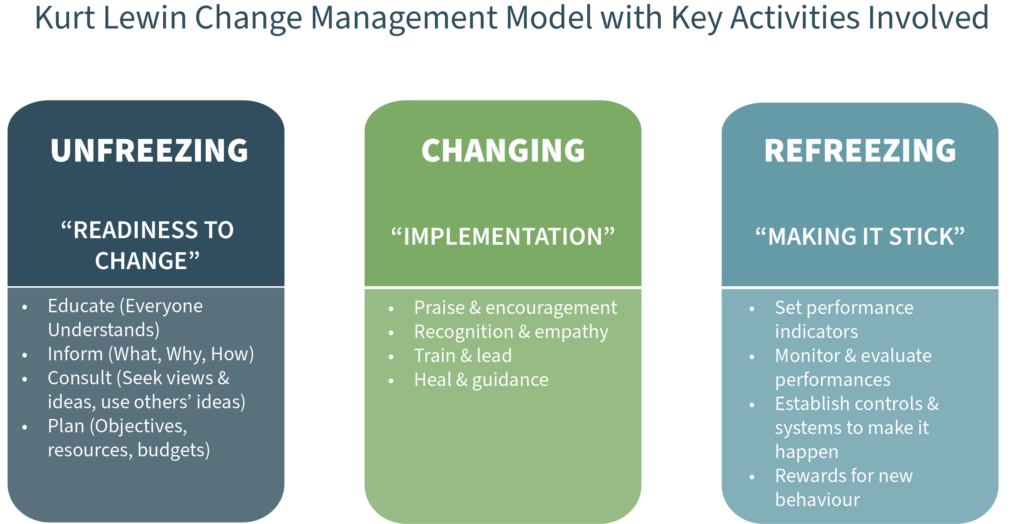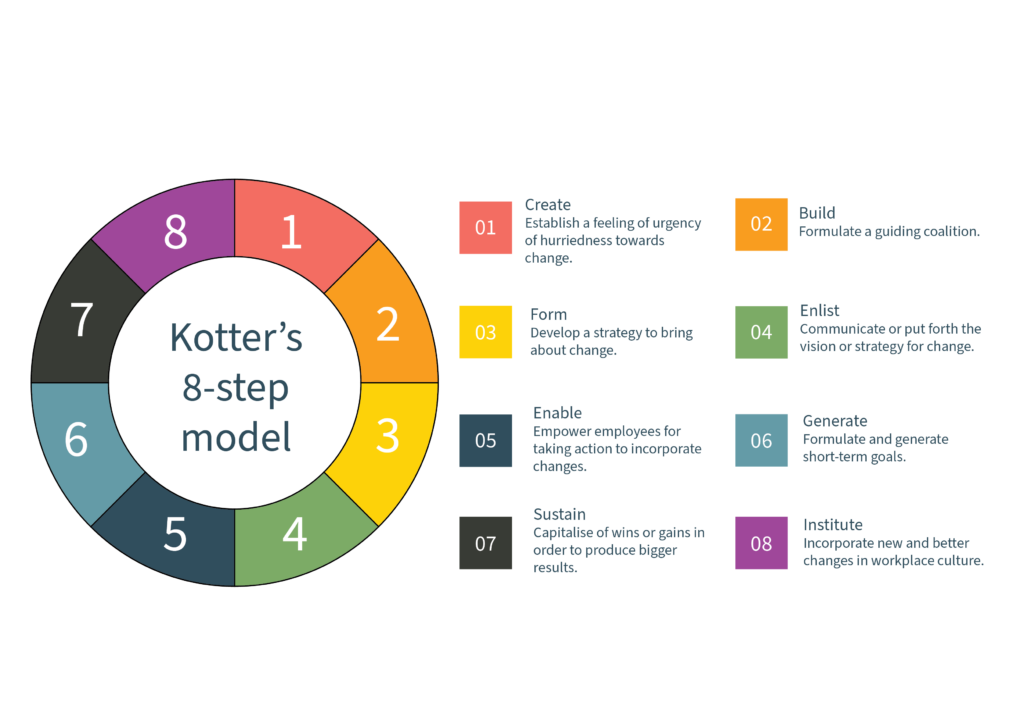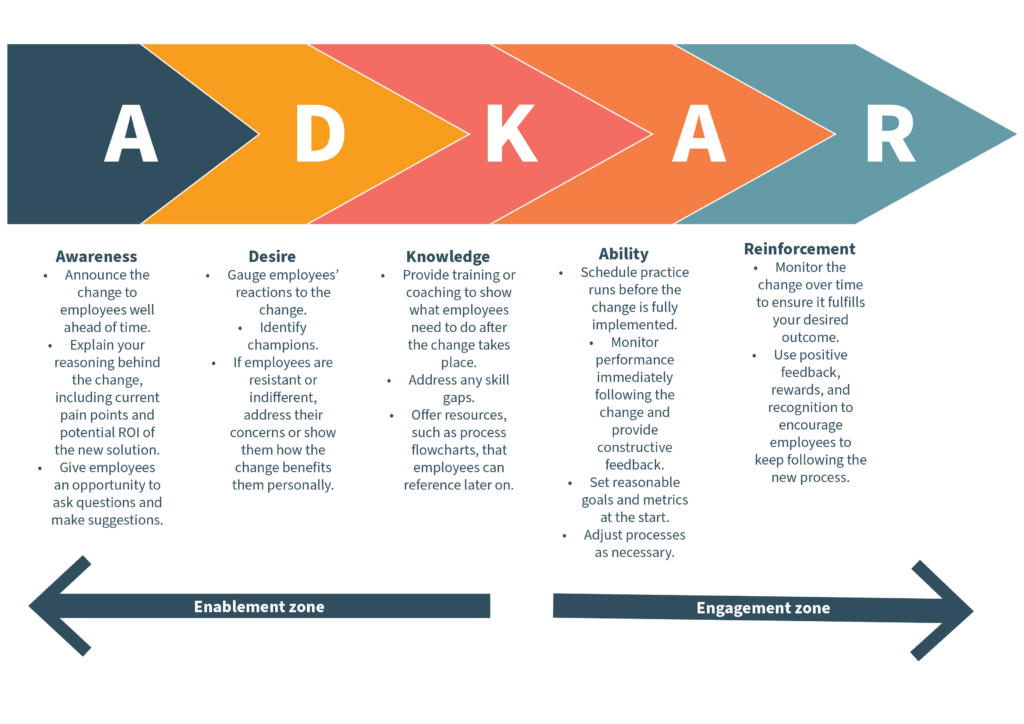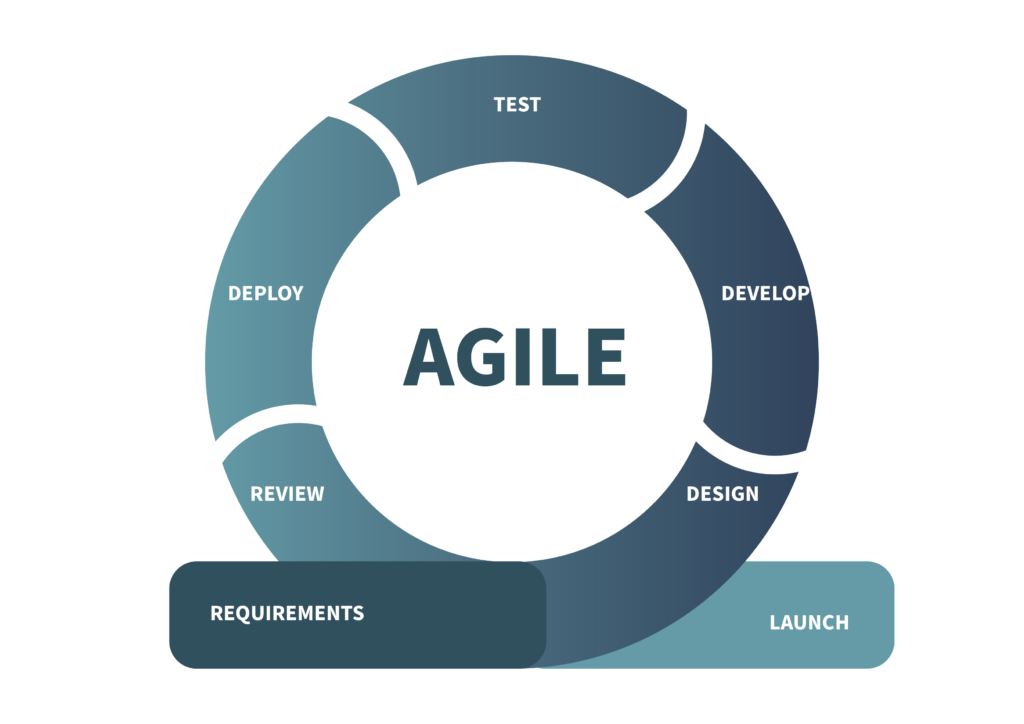Change is a constant presence in today’s dynamic business landscape, and effectively managing change has become a crucial skill for leaders. Organisations must adapt to technological advancements, market fluctuations, shifting customer expectations, all pushing the need for effective change management.
To get you started on your journey with change management, this article will outline:
- The principles and steps of change management
- The role of change agents and change management consultants
- How to embrace change management methodologies
- How to navigate the process of change successfully
Understanding Change Management
Change management refers to the structured approach an organisation adopts to transition from its current state to a desired future state. The goal is to minimise disruption and ensure that all members of the organisation are actively engaged, suitably equipped, and genuinely enthusiastic about embracing the changes. A well-constructed change management plan functions as a roadmap, expertly guiding the organisation through the complexities of transformation.
The Principles and Steps of Change Management
Change management is built upon a bedrock of principles that bolster success. These principles include:
- Transparent Vision and Communication: Leaders must articulate a clear, compelling vision for the upcoming change and communicate it transparently to all stakeholders. Open communication minimises resistance and uncertainty.
- Inclusive Participation: Involve employees at every organisational tier in the change process. This fosters a sense of ownership and commitment as their insights and concerns are considered.
- Empathy and Support: Recognise the emotional factor of change. Leaders should provide the necessary emotional support and resources to help employees navigate the transition successfully.
- Continuous Learning: Cultivate a culture of continuous learning (curiosity) and improvement. Adaptability is key, and leaders must be open to refining the change strategy based on feedback and outcomes.
Selecting the Appropriate Model and Methodology
A range of change management models and methodologies are available for leaders to choose from, based on the requirements of their organisation. Some noteworthy options are:
Lewin’s Change Management Model: This model revolves around the stages of unfreezing (preparing for change), changing (implementing the change), and refreezing (stabilising the new state).

Kotter’s 8-Step Process for Leading Change: This approach emphasises the need to create a sense of urgency, establish a strong key stakeholder alliance, and maintain momentum for successful change.

ADKAR Model: This model prioritises individual change, addressing Awareness, Desire, Knowledge, Ability, and Reinforcement as the key elements required for successful change.

Agile Change Management: Inspired by agile project management, this approach involves iterative cycles, swift adjustments, and sustained collaboration to adjust to evolving circumstances.

The Roles of Change Agents and Change Management Consultants
Change agents are individuals within an organisation who champion and facilitate the change process. They should possess excellent change management skills, including effective communication, empathy, and adept problem-solving. Change agents play a pivotal role in ensuring the smooth execution of the change management plan.
Change management consultants, on the other hand, are external experts who provide specialised guidance in change management. When contemplating a change management consultant, organisations should seek someone with a proven track record, an in-depth understanding of diverse change management methodologies, and the ability to customise strategies to align with the unique context of the organisation.
The Significance of Change Management in Organisational Success
Change management is far from a simple luxury; it’s a necessity. Organisations that have sustainable and effective change management are more likely to:
- Mitigate Resistance: Addressing employees’ concerns and involving them in the process diminishes resistance and heightens acceptance.
- Boost Productivity: When employees understand “the why” behind change and receive proper training, productivity remains steady during transitions.
- Elevate Employee Morale: Transparent communication and emotional support throughout the change process can elevate employee morale and job satisfaction.
- Dampen Risks: A well-structured change management plan reduces the risk of project failure, unforeseen challenges, and potential negative impacts on the organisation.
Navigating Change
Change management isn’t a one-size-fits-all. It requires an organisation to tailor its approach in accordance with its unique circumstances, culture, and aspirations. By embracing the principles of change management, adhering to a well-defined process, and utilising appropriate models and methodologies, leaders can manoeuvre change with skill and agility. Change agents and change management consultants play key roles in steering organisations through transformations, ultimately contributing to the realisation of organisational success.
In an era characterised by rapid innovation and constant change, change management goes beyond being a mere strategy; it is a critical skill that distinguishes exceptional leaders and successful organisations. By acknowledging the importance of change management and investing in its implementation, leaders can position their organisations for an efficient and more adaptable future.

